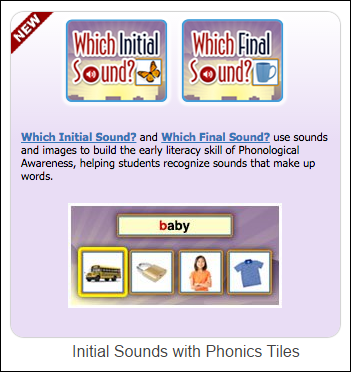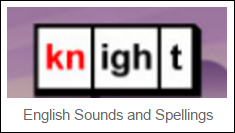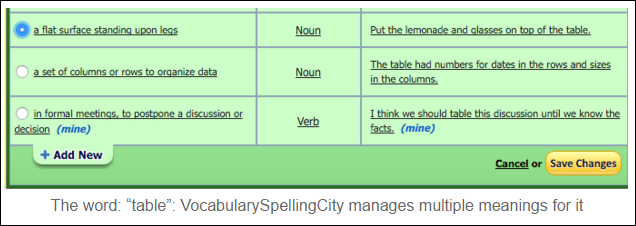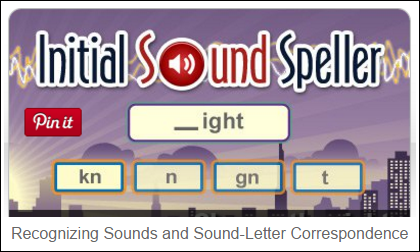The VocabularySpellingCity site and app is a unique literacy tool used by many millions in schools, often to help ELL students. Why? Because VocabularySpellingCity is a rare combination of powerful, flexible, inexpensive, and convenient. Teachers can start using it on their own, or whole school districts can adopt it as a language arts study supplement.
VocabularySpellingCity primarily addresses ESL levels 1, 2, and 3. These levels of English Language Learners are working on basic vocabulary, English sound recognition, English sound-letter correspondence, building academic and subject language vocabulary, using words in context, and spelling. VocabularySpellingCity also provides tools enabling teachers to provide the right word list for each student; differentiated assignments address each ELL student’s needs. ELL study is one of many places where tools for differentiated vocabulary and word study can provide huge benefits. Here are examples of specific benefits and the features that enable them:
 Builds Segmenting and Phonological Awareness with Audio. VocabularySpellingCity helps students by letting them both see and hear the words. Each word is spoken in a custom sentence so they can experience it used in context. VocabularySpellingCity allows users to see and hear each sound, or phoneme, in the words. This is a unique, patent-pending benefit. ELL students can practice segmenting English words into their sounds and syllables, building English Sound Recognition. This is essentially phonological awareness practice adapted for ELL and leveled so it doesn’t have a little-kid sensitivity, like many phonological skill-building exercises. As a reminder, phonological skills are the ability to distinguish the sounds in a language.
Builds Segmenting and Phonological Awareness with Audio. VocabularySpellingCity helps students by letting them both see and hear the words. Each word is spoken in a custom sentence so they can experience it used in context. VocabularySpellingCity allows users to see and hear each sound, or phoneme, in the words. This is a unique, patent-pending benefit. ELL students can practice segmenting English words into their sounds and syllables, building English Sound Recognition. This is essentially phonological awareness practice adapted for ELL and leveled so it doesn’t have a little-kid sensitivity, like many phonological skill-building exercises. As a reminder, phonological skills are the ability to distinguish the sounds in a language.  For non-English speakers, there is a huge need to become familiar and master the sounds and sound combinations that are unique to English. French language speakers can focus on the /th/ sound which is so unfamiliar to them, although they do have a /Z/ sound, which they tend to rely on. Asians can focus on the /r/ and /l/ sounds, which tend to be unfamiliar. And Spanish speakers can focus on the challenge of mastering the English distinction between long and short vowels. VocabularySpellingCity provides this capability and does it without relying on confusing phonetic symbols; the words are spelled normally and the sounds are linked to how those letter combinations are pronounced in the word.
For non-English speakers, there is a huge need to become familiar and master the sounds and sound combinations that are unique to English. French language speakers can focus on the /th/ sound which is so unfamiliar to them, although they do have a /Z/ sound, which they tend to rely on. Asians can focus on the /r/ and /l/ sounds, which tend to be unfamiliar. And Spanish speakers can focus on the challenge of mastering the English distinction between long and short vowels. VocabularySpellingCity provides this capability and does it without relying on confusing phonetic symbols; the words are spelled normally and the sounds are linked to how those letter combinations are pronounced in the word.
 Builds Knowledge of Sound-Letter Correspondence. Many ELL students have strengths in either oral or written English, and weakness on the other side. VocabularySpellingCity provides them a way to use their strengths to build their weakness. The activities allow students to hear their words used in sentences while looking at the sentence. Alternatively, they can play phonological games, which force them to develop their aural and segmenting skills. The Sentence Unscramble game builds phonological awareness at the word level, while Phonics+ games build them at the phoneme levels. The SillyBulls game helps students recognize the patterns in English by focusing on the syllables in words.
Builds Knowledge of Sound-Letter Correspondence. Many ELL students have strengths in either oral or written English, and weakness on the other side. VocabularySpellingCity provides them a way to use their strengths to build their weakness. The activities allow students to hear their words used in sentences while looking at the sentence. Alternatively, they can play phonological games, which force them to develop their aural and segmenting skills. The Sentence Unscramble game builds phonological awareness at the word level, while Phonics+ games build them at the phoneme levels. The SillyBulls game helps students recognize the patterns in English by focusing on the syllables in words.
 Builds Basic and Academic Vocabulary. If a student is just beginning to learn English, there are scores of word lists to help students get started with the basics. At school, students encounter familiar words used in unfamiliar ways, a major theme around the recent focus on vocabulary. Take the word “table”: At first glance, it’s a basic word which many students take for granted that they know. But in arithmetic, they are unprepared when teachers ask them to “study their multiplication tables” or when they read about a legislature moving to “table a discussion.” These potentially confusing word meanings are easily taught through the use of lists customized to highlight the various usages. [Teachers can also build customized word lists for students using themes such as:
Builds Basic and Academic Vocabulary. If a student is just beginning to learn English, there are scores of word lists to help students get started with the basics. At school, students encounter familiar words used in unfamiliar ways, a major theme around the recent focus on vocabulary. Take the word “table”: At first glance, it’s a basic word which many students take for granted that they know. But in arithmetic, they are unprepared when teachers ask them to “study their multiplication tables” or when they read about a legislature moving to “table a discussion.” These potentially confusing word meanings are easily taught through the use of lists customized to highlight the various usages. [Teachers can also build customized word lists for students using themes such as:
- Meals: breakfast, lunch, dinner, supper, snack, hungry, restaurant
- School: classroom, teacher, principal, vice-principal, schedule, desk, hallway, bathroom, attendance, homework
For those of you who are new to VocabularySpellingCity, here is a quick general overview.

The VocabSpellingCity site is good!!! Am I the only one who keeps confusing “sight” and “site”?
What’s the fancy Latin-derived term for these sound-alike words? Doesn’t the sight, I mean site, have some lists and exercises to practice it?
d
Hi David,
We have both Latin and Greek Roots Words lists available on our “site”. Under Word lists & Lessons head to English / Language Arts, then drill down to Vocabulary Study and here you’ll find this hidden gem of word lists. A total of 29 lists are currently available.
http://www.spellingcity.com/latin-greek-root-words.html
Use these words with our learning activities to engage your students.
I need help
Segmenting and recognizing sounds and syllables are key prereading skills. Here’s a page with a good overview of the activities that VocabularySpellingCity has to offer:
https://www.spellingcity.com/word-study-games.html
“site” and “sight” words are sound-alike words meaning that although they sound alike, they are written differently and mean different things.
They are known as homophones. Easily confused with heteronyms and homonyms. Here’s a page that sorts it all out:
https://www.spellingcity.com/homophones-and-homonyms.html
Is there a way to get directions said in Spanish?
Is there a way to get the directions said in Spanish? I have a new student that has no English and it would be helpful for the directions to be read in Spanish to them since I know very little.